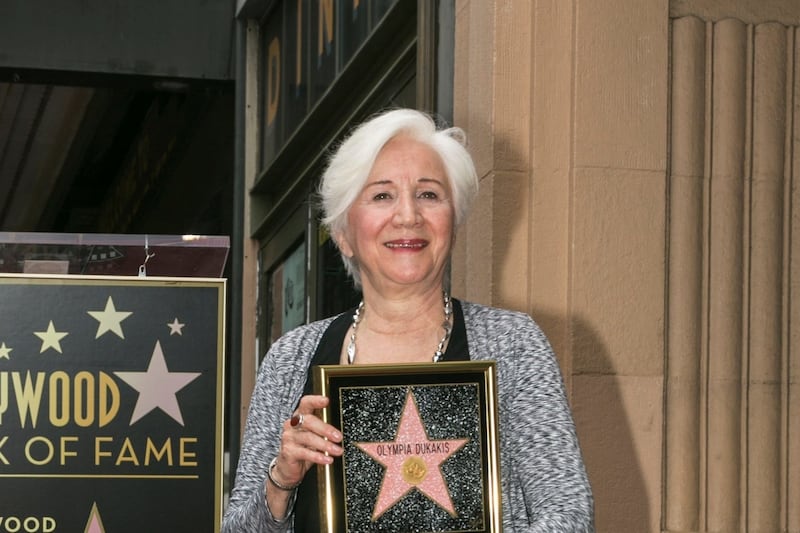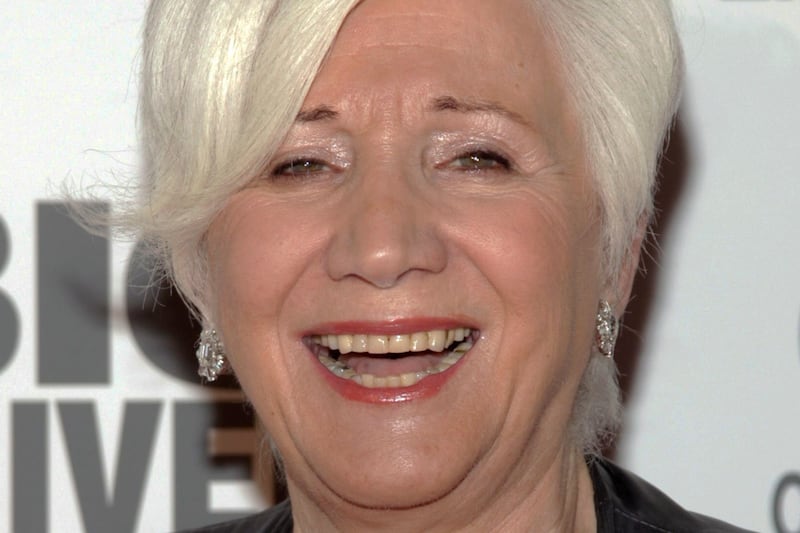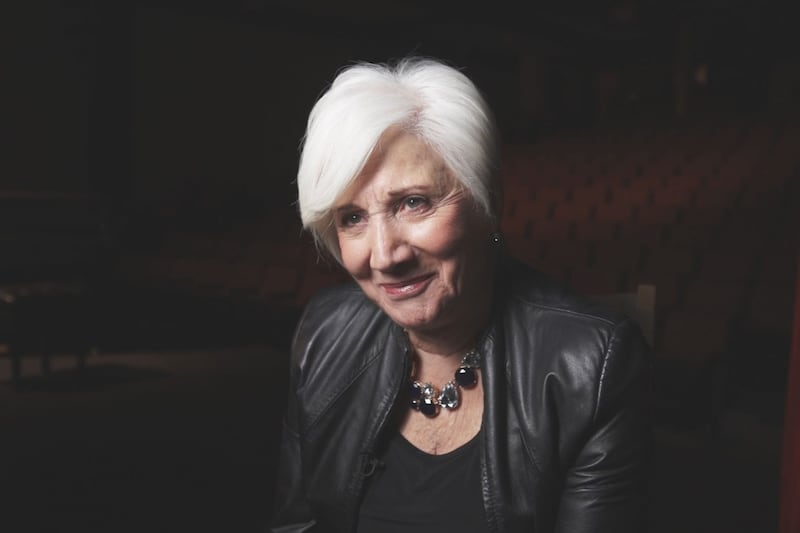IT’S been a long and winding road for Olympia Dukakis. The veteran actress is now 89 and she is looking back on a career of triumphant highs and crushing lows.
It’s been more than 30 years since she won an Oscar in 1988 for Moonstruck and along the way she also starred in Steel Magnolias, Working Girl, Look Who’s Talking, Mighty Aphrodite and the groundbreaking series TV series Tales Of The City.
But she has also grappled with drug use and thoughts of taking her own life. She speaks frankly about all those experiences in the new documentary Olympia, directed and produced by Harry Mavromichalis, who was a graduate student at NYU Film School in New York, while Dukakis was teaching there.
“What I loved about this documentary was that Harry wasn’t afraid to ask tough questions,” she says from her home in the US, “and then include these conversations in the film.
“Topics that are either taboo or that make people uncomfortable are usually left out of films like this. Sharing these experiences is cathartic for one’s self but I hope that they’re also helpful for other people who might be going through a similar experience.
“There are too many LGBTQ kids who still take their lives. There are too many young people who get overwhelmed with life’s struggles. There are too many people who are dealing with drug addiction.
“It’s important to know that you’re not alone and it’s a responsibility for those of us who have fought these battles and survived to be a small beacon of hope for those who are currently trying to figure things out.”
Dukakis never wanted to take part in a documentary about her own life, and didn’t expect she ever would, but she ended up finding the whole experience of reflection unexpectedly moving.
“When Harry asked me to do it, my initial reaction was no. But he insisted for months and finally I hesitantly agreed to do it.
“He followed me around for three years but each shoot had a set start and end date so I was able to handle it. It was hard at the beginning but at some point we got into a groove and it was fine.
“I don’t know what I was expecting when Harry arranged for a screening at my house, but, honestly, I wasn’t expecting what I saw.
“I invited my close girlfriends to come to the apartment and watch it with me. You have to understand that I never watch any of my films. I don’t like seeing myself on screen. And that’s in films with carefully crafted characters who have full hair and make-up, costumes and words written by talented writers.
“This film was going to be about the real me. As we were watching the film, I remember laughing and hearing my friends react. I was so moved when the film finished. The film was about me but I found myself caring and wanting to know what happened next. I don’t know how else to explain it.
“There’s an honesty about the film that spoke to me. I actually saw myself through Harry’s eyes. I’ve never had that experience before.”
Born in the US to Greek immigrant parents (her cousin is the former Democratic presidential candidate Michael Dukakis), she wrestled with a feeling of not belonging when she was young.
“It informed who I am and how I went about living my life,” she says. “My parents were the first and most important ‘battle’ I had to fight. What they expected from me versus how I chose to live.
“Also, I grew up in a neighbourhood where I wasn’t accepted; luckily I learned to stand my ground no matter what. No-one was going to control my life or define me.
“Of course I didn’t realise how much anger I had inside of me. It was through acting that I realised that. Throughout my life, my anger had become a motor that gave me strength and gave me confidence. But at times it was also paralysing. Thank God for acting, teaching and therapy. But at my age, now, I just want to have a good time.”
The film includes footage of her mother watching the Oscars on television the night her daughter won, and the pride on her face is clear to see. But it also appears that was a crucial moment for Dukakis in proving herself to parents who had not always approved of her choices.
“My mother was not the kind of mother who would tell us she loved us or that she was proud of us, but we knew she was.
“Her actions spoke louder than words. Things would come out of her mouth that were just hysterical. She always made us laugh. She told a journalist that she didn’t think I was ever going to be successful because I wasn’t pretty enough. But, having said that, she did cry when I won and I could tell how proud she was.
“I remember that night, walking on the red carpet with my husband, my brother and his wife and thinking that it was all so surreal. I saw how everything was decorated and I thought it looked like a Roman spectacle.
“I remember when my name was announced, there was a calmness that overcame me. I remember seeing Louis (her husband Louis Zorich) crying through my whole speech.
“I remember talking to my cousin Michael, who was running for president that year, and realising that not long ago we were playing in the streets of Arlington, Massachusetts, two children of immigrants who were made fun of and told that they were not good enough.”
And always an outspoken feminist, Dukakis has been heartened by how much things have changed for women in Hollywood over the course of her long and storied career.
“I think things are finally moving in the right direction, both for women and for minorities. We are far from reaching our goal but there’s a forward movement that’s real and strong.
“You’re seeing more women as directors and decision-makers and that’s a great thing. I’m happy that I’ve lived a long enough life so I could witness the growth that has occurred.
“These are inspiring times and I hope they will lead to more inclusion, equal pay and opportunity and a lot more great films from groups that have been silenced in the past.”
:: Olympia is available to watch now at Olympiathefilm.com






